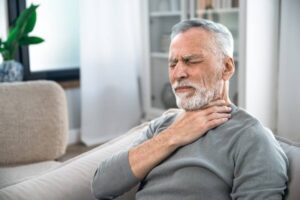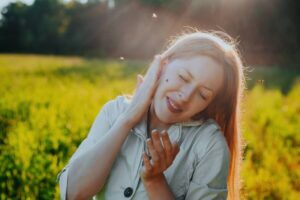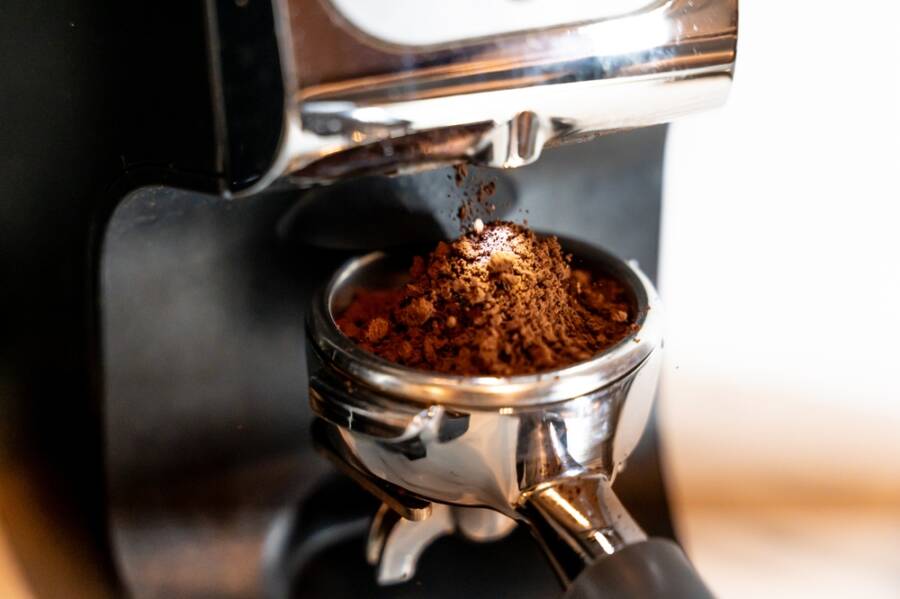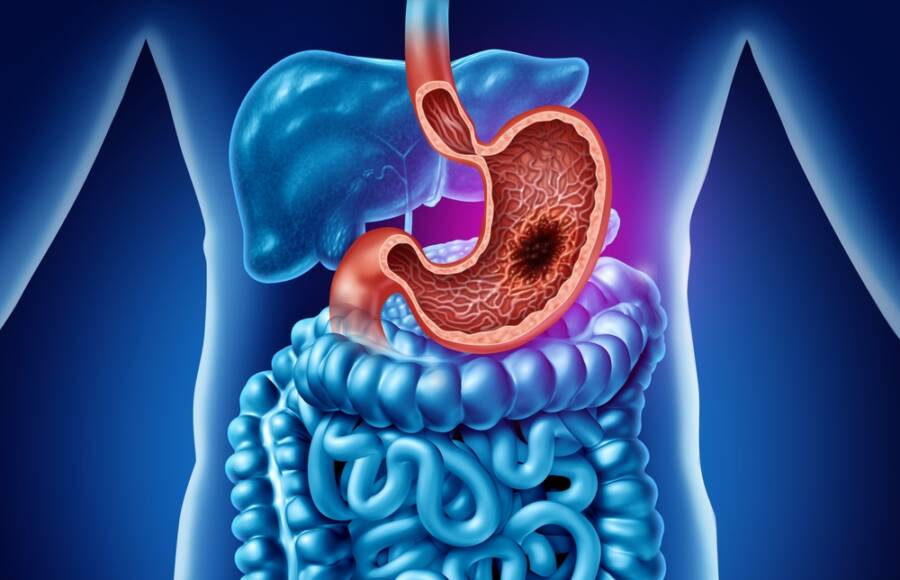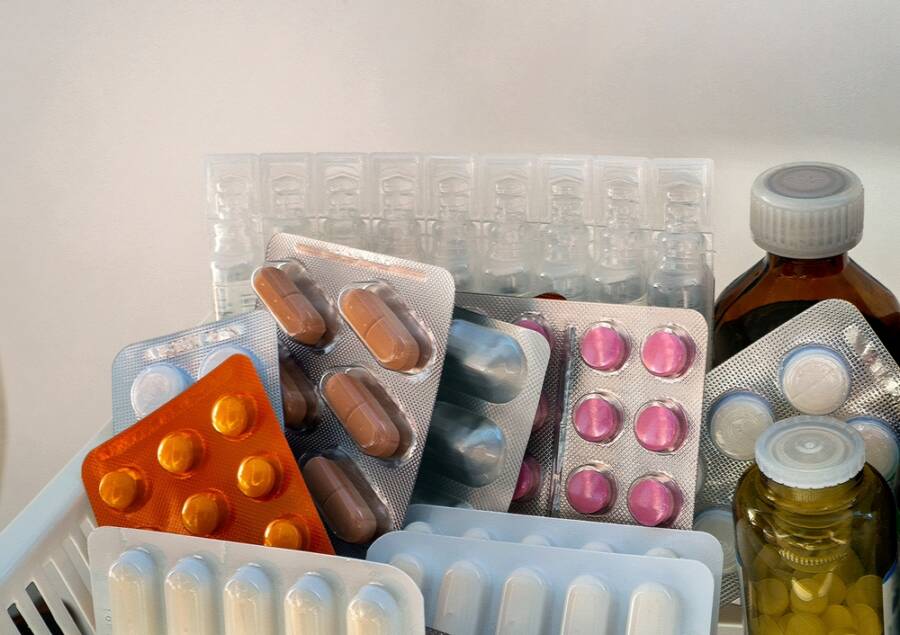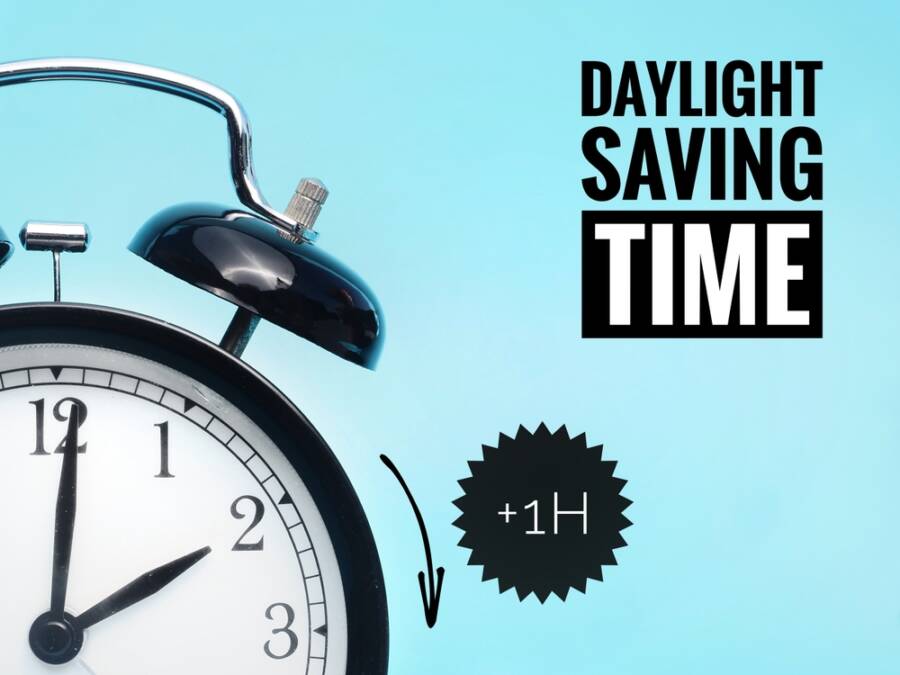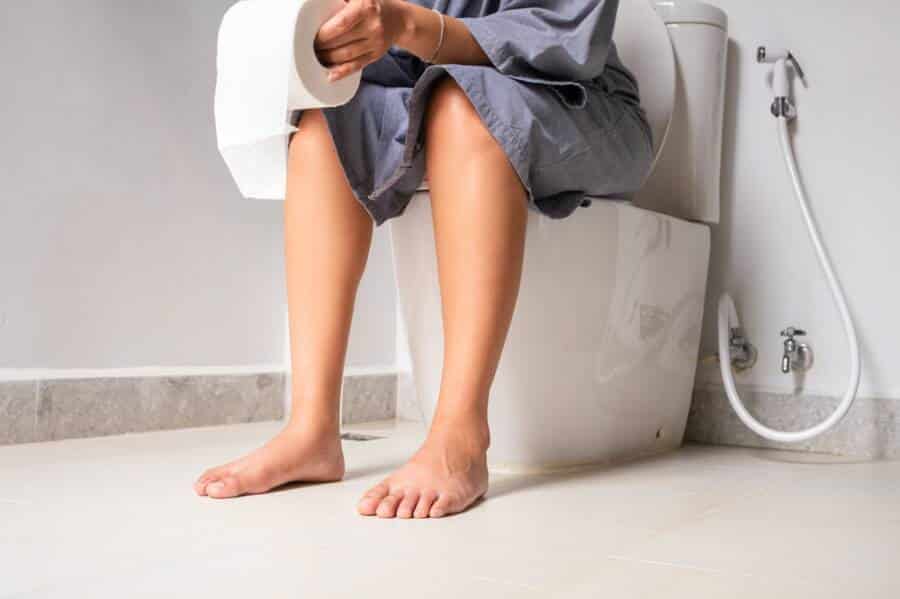Look in the mirror. Look a bit closer.
Do you notice anything strange about the skin on your face?
If you’re like many other people, chances are you’ll see a few tiny bumps in different areas. They’re not acne, they’re definitely not freckles – just some little strange bumps that interrupt the smoothness of your skin.
What are those things? Why do so many people have them constantly while others never get them at all?
According to Joel Schlessinger, dermatologist and Advisor for RealSelf, if there’s a bump on your face that is not turning darker, bleeding or growing abnormally, you shouldn’t intervene in any way. Most of the time, these bumps come and go on their own.
However, there are also times when these dot-like features can signal a hidden medical issue that requires your attention. This is the main reason why you should contact your doctor as soon as you notice anything unusual about your skin.
As we all know, though, the first step into detecting any problem is to stay informed on the potential causes of this symptom, as well as prevention and treatment options.
By the way, I’m currently reading this book and I can say I love it very much. It talks about the types of skin (oily, sensitive, dry, combination, and normal) and ways you can take care of it. It’s definitely a nice book to learn more about skin, beauty products, ingredients, and so on.
Here are 5 possible reasons for face bumps!
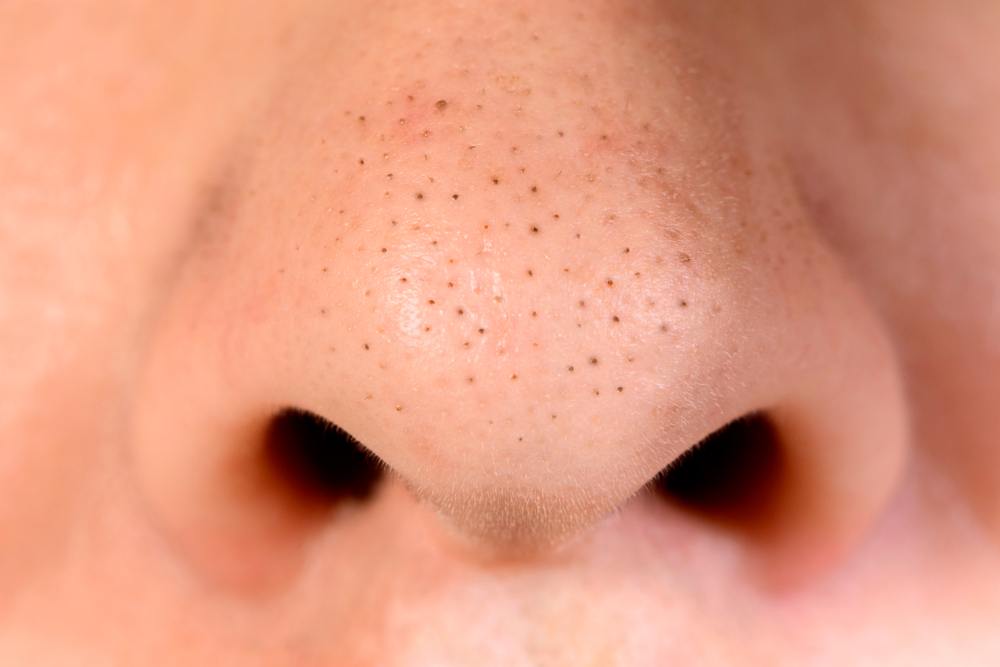
1. Comedones
Have you ever heard of whiteheads or blackheads? If so, then congrats – you already know what comedones are!
Now, in more medical terms, comedones are pores that have been clogged with dead skin cells and/or oils that have accumulated in a certain area. Comedones are divided in two main categories: whiteheads and blackheads.
Both categories have the same cause. The only difference between them is that some comedones are open, which makes dead skin cells and oil oxidize, hence taking that dark brown or black color hue – and those are commonly called blackheads.
Treatment & prevention:
Luckily, comedones don’t pose a threat to your health in any way; however, they can become annoying and unesthetic. Dr. Schlessinger recommends his patients to wash their face using a cleanser with more than 2% salicylic acid every night before going to bed.
As for what you should avoid, pore strips aren’t actually as cool and revolutionary as they’re advertised to seem. This product contains an adhesive which can damage your skin and leave unwanted marks, Dr. Schlessinger warns.
2. Milia
Some whiteheads may not go away no matter what you do: cleansers, face masks, literally trying to squeeze them between your fingertips (which is not recommended at all!).
If you’re currently having this problem as well, you might be dealing with milia. In simple terms, milia is a small cyst filled with keratin (a substance naturally produced by your body). Most of the time, it occurs near the cheek, nose, and eyes area and although it’s very common in newborns, it can show up at any age.
Many people are scared when they hear the word ‘cyst,’ but milia is different: these small bumps are completely harmless and their only inconvenience is esthetical.
Treatment and prevention:
Milia appears when a mix between keratin and dead skin cells gets stuck under the skin on your face. Mild cases can go away by using face products with alpha-hydroxy acids (AHAs), as they make great exfoliators. However, if they don’t disappear with at-home treatments, these bumps can be removed by your dermatologist with a tiny incision in the skin.
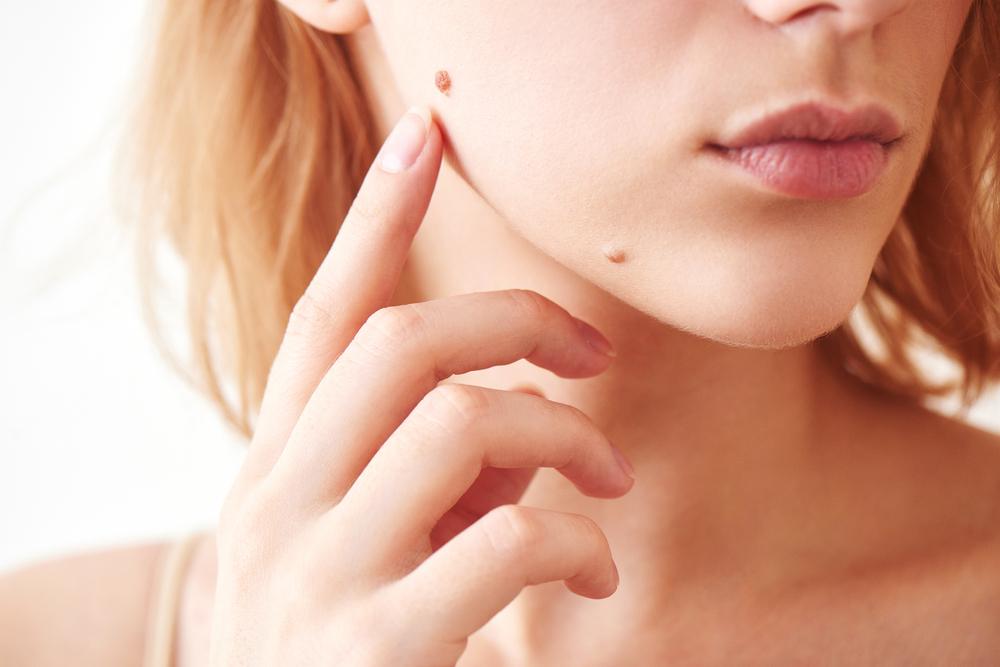
3. Moles
This type of bumps is probably more popular than the ones mentioned above; moles can appear at any age (maybe some of us have had them forever!), but they’re especially more common after 50. Whether they’re red, brown or fleshy-like bumps or spots, they’re completely harmless and can appear in any area of the body.
Moles are formed when the skin cells which make melanin (called melanocytes) gather and start growing in clusters rather than spread out as they should.
If you’re feeling embarrassed by these bumps, stop right now! The American Academy of Dermatology Association has found that every single person has at least one mole, be it big or small.
Treatment and prevention:
Although moles are extremely common, many people are trying to get rid of them due to their unaesthetic appearance. Your dermatologist can remove raised moles when they cause discomfort such as rubbing against your clothes or preventing you from applying makeup properly.
Moles don’t pose any threat to your health, but they can easily be mistaken with melanoma. If you notice any of the following warning signs, contact a specialist as soon as possible:
- Sudden, abnormal growing
- Change in color or shape
- Irritation and/or bleeding
All of these symptoms can hide a serious health problem such as skin cancer, which is why they require immediate medical attention.
4. Inflamed pimples
It’s painful, red and has a huge white head that seems ready to explode: that’s what an inflamed pimple looks like. This bump only starts out as a regular pimple, but when bacteria on our face mixes with the dead skin cells accumulated in that area the result is an inflamed pimple.
When there are many pimples inflamed around your face, the dermatological diagnosis is inflammatory acne. This condition is painful and over time it leads to swelling, redness and sensitivity in the affected area.
According to Jerome Garden, dermatologist and director of the Physicians Laser and Dermatology Institute in Chicago, if inflammatory acne isn’t treated on time it can cause scars.
Treatment and prevention:
If you start noticing inflamed pimples on your face, Dr. Garden says you can prevent complications by applying a gentle cleanser with benzoyl peroxide and other oil-free products. As a bonus trick, he recommends mixing hydrocortisone 1% cream and a benzoyl peroxide cream; apply the mixture on the inflamed pimples twice a day until the affected area gets better.
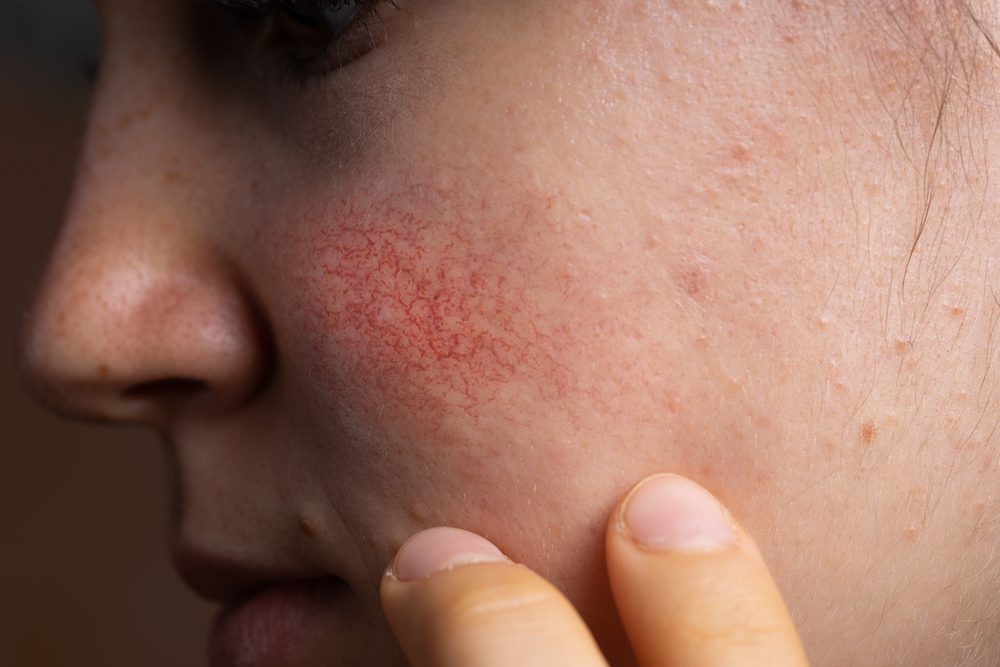
5. Rosacea
Rosacea is a chronic inflammatory disease which causes bumps and redness (similar to the type of redness you get when you’re blushing). This condition does not cause any complications, although it can be inconvenient from an esthetical point of view.
Interestingly enough, few people have heard about rosacea but up to 10% of our country’s population has it – that’s more than 16 million Americans!
The bumps caused by rosacea are usually accompanied by redness in the affected area, which can usually be the cheeks, nose, lower forehead and chin.
Treatment and prevention:
So far, this is still a mysterious illness as specialists can’t figure out its exact cause, nor they can offer a treatment to eliminate the condition permanently. However, there are many skin treatments you can opt for to reduce some of the redness and inflammation associated with the condition.
Generally, washing our skin frequently using healthy products designed for our skin type can eliminate any risks of complications.
You may also want to read Allergic Reaction? Here Are 9 Innocent Everyday Items That Might Be Causing It.






